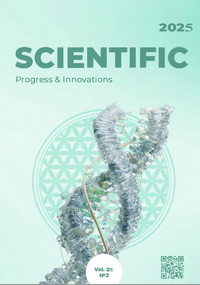Optimization of processes in hybrid maize cultivation technology: a managerial perspective
DOI:
https://doi.org/10.31210/spi2025.28.02.07Keywords:
hybrid maize, technology rationalization, agroprocess management, Forest-Steppe of Ukraine, economic efficiency, profitability, agromanagementAbstract
The purpose of this review is to analyze the possibilities for optimizing production processes in the cultivation technology of hybrid maize from a managerial perspective, considering the current challenges in agricultural production and aiming to enhance overall efficiency. The review focuses on management approaches that improve agricultural productivity by streamlining key stages of the production cycle – from sowing to harvesting. Special attention is given to decision-making processes, digital technologies, and adaptive planning as tools for increasing the efficiency of hybrid maize production. An analysis of market trends in 2023–2024 reveals that despite a decline in profitability to 11 %, maize remains a strategic crop in crop rotation. This is due to stable yields, partial recovery of export potential, and a favorable price dynamic. The review identifies that managerial efforts are primarily concentrated on technologically and economically sensitive stages – sowing, fertilization, crop protection, and harvesting. Rationalization at these stages allows for yield increases from 5.0–6.0 to 7.0–7.5 t/ha, and profitability growth to 18–22 %. The efficiency of agricultural enterprises increasingly depends on the quality of managerial decisions. Priority areas include optimization of sowing and harvesting schedules, cost control, and modernization of technical support. Based on the analysis of scientific literature and analytical materials, several practical directions for improving management have been identified: the implementation of automated accounting systems, the use of digital monitoring tools (GPS, drones, agro-scouts), and adaptive planning that considers not only agrotechnological factors but also climate variability and market conditions. The generalizations provided in this review can support the development of managerial decisions aimed at enhancing the economic resilience, profitability, and competitiveness of agricultural enterprises. The systematization of approaches to the rationalization of production processes demonstrates that technological renewal, combined with digital tools, enables the transformation of even low-profit production models into profitable ones.
Downloads
Published
How to Cite
Issue
Section
License
Copyright (c) 2025 Scientific Progress & Innovations

This work is licensed under a Creative Commons Attribution 4.0 International License.

 Creative Commons Attribution 4.0 International Licens
Creative Commons Attribution 4.0 International Licens